Serving The Community Since 1933
Perrysburg Animal Hospital Frequently Asked Questions
Have a question? We have the answer. Check out these FAQs and give us a call today for more information!
-
What food and drinks may be harmful to my pet?
Some food and drink items that you consider tasty treats may be dangerous for your pet. As tempting as it might be to share your food or drink with your four-legged friend, please resist!
Some of these items include:
- Alcoholic drinks and food products containing alcohol
- Caffeine (found in a lot of drinks such as coffee, tea, soda, and energy drinks)
- Chocolate- especially baking chocolate
- Fatty foods
- Avocados
- Garlic
- Grapes and raisins
- Macadamia nuts
- Marijuana
- Onions
- Salt
- Tobacco products (including e-cigarettes and their refills)
- Xylitol (a sweetener found in products such as some sugar-free chewing gum, sugar-free candy, cough syrup, mouthwash, and toothpaste)
- Yeast products (like raw bread dough)
- Medicine intended for people or another pet, unless directed by your veterinarian For example, nonsteroidal anti-inflammatory drugs for people, such as aspirin, ibuprofen, and naproxen, may not be right for your pet and may even be harmful; and the common pain reliever acetaminophen is fatal to cats.
If you think your pet has eaten something potentially dangerous call our hospital right away, as well as, a pet poison control center right away.
-
Should I Spay or Neuter my pet?
By spaying or neutering your pet, you’ll help control the pet homelessness crisis, which results in millions of healthy dogs and cats being euthanized in the United States each year simply because there aren’t enough homes to go around. There are also medical and behavioral benefits to spaying (female pets) and neutering (male pets) your animals.
Here are some of the medical benefits:
- Your female pet will live a longer, healthier life. Spaying helps prevent uterine infections and breast tumors, which are malignant or cancerous in about 50 percent of dogs and 90 percent of cats. Spaying your pet before her first heat offers the best protection from these diseases.
- Neutering your male companion prevents testicular cancer and some prostate problems.
And behavioral benefits:
- Your spayed female pet won't go into heat. While cycles can vary, female felines usually go into heat four to five days every three weeks during breeding season. In an effort to advertise for mates, they'll yowl and urinate more frequently—sometimes all over the house!
- Your male dog will be less likely to roam away from home. An intact male will do just about anything to find a mate, including finding creative ways escape from the house. Once he's free to roam, he risks injury in traffic and fights with other male animals.
- Your neutered male may be better behaved. Unneutered dogs and cats are more likely to mark their territory by spraying strong-smelling urine all over the house. Your dog might be less likely to mount other dogs, people and inanimate objects after he’s neutered. Some aggression problems may be avoided by early neutering.
Spaying/neutering your pets is also highly cost-effective. The cost of your pet's spay/neuter surgery is far less than the cost of having and caring for a litter, as well as the cost of emergency surgery. We recommend spaying or neutering your pet between 9-12 months.
If you would like more information on spaying or neutering your pet, please give our hospital a call.
-
Is the cost of Veterinary Medicine too expensive and unreasonable?
The extent of care given to any animal is ultimately determined by the owner. Every pet owner has different ideas as to what is acceptable pet care. Veterinarians can only make their clients aware of the medical options that are available. Then, they guide owners in their choices regarding the most important health care options for their pets. The final decision and choices rest with the owner. Veterinarians are willing and do go to the extra mile for pet owners, but owners should be prepared for the associated expenses and understand that the veterinarian should be compensated for his/her professional services and related expenses.
-
Why are vaccines so important for my pet to have?
Vaccinations are designed to protect pets—and even owners—against an array of illnesses. While vaccinations help keep infection at bay for your pet, they also play a large role outside of disease prevention.
Some diseases are zoonotic; meaning they can be transmitted from animals to people. Vaccinating your pet helps reduce the risk of human infection, particularly if there are vulnerable members like the younger or elderly in your household or immunosuppressed patients.
Veterinary vaccinations are substantially less expensive than the cost of treatment for the diseases they protect against. Life-threatening illnesses to your pet can be nearly 100% preventable with vaccinations.
Our Veterinarians can best determine a vaccination schedule for your pet. This will depend on the type of vaccine, your pet’s age, medical history, environment, and lifestyle. However, in general, vaccines should be given at approximately 8, 10, and 12 weeks of age then repeated annually.
By taking preventative measures to protect your pet, you will help ensure a healthier and happier life for both of you.
Please contact our hospital if you have any questions regarding vaccines and your pet.
-
Why should I get my pet Heartworm and Flea Prevention?
Heartworm disease is a serious and potentially fatal disease in pets in the United States and many other parts of the world. It is caused by foot-long worms (heartworms) that live in the heart, lungs, and associated blood vessels of affected pets, causing severe lung disease, heart failure and damage to other organs in the body.
Avoiding this infection of heartworms, as well as fleas and ticks in your beloved dog and cat is essential for the pets’ health.
This can easily be prevented in both dogs and cats with monthly medications that can be purchased through our in-house or online pharmacy. There are various preventatives on the market these days and each medication is slightly different in which parasites they protect against and the mode of how they work.
That is why discussing the individual needs of your pet is important. Our Veterinarians can tailor the appropriate preventative to your pet’s specific needs so that your pet is being protected, without being given products it doesn’t necessarily need.
The American Heartworm Society recommends that you “think 12:”
- Get your pet tested every 12 months for heartworm
- Give your pet heartworm preventive 12 months a year.
Year-round flea prevention is important even in the cold winter months. A question we get asked a lot is do I really need to keep giving those flea preventives for my pets all year long?
Believe it or not, many of these parasites are still active during the winter months, no matter how frigid it may get. Year-round flea preventives not only help safeguard your pet from disease, but they help protect your family’s health as well.
Outdoors, fleas can survive in temperatures of -30 degrees Fahrenheit. They can also ride out the winter on dogs and cats huddled next to the skin where it’s warm. It is also important to keep in mind that the flea eggs that fell into your carpeting and furniture last summer may develop into adult fleas in the temperate environment of your home this winter. On dogs and cats, fleas can cause uncomfortable itching, especially in pets with flea allergy dermatitis, which results from a severe allergic reaction to flea saliva; and once fleas are in your home, it can take months to get rid of them, and you run the risk of the people in the house getting fleas as well. Because fleas can contain tapeworm larvae, your pets can become infected when they accidentally ingest a flea during grooming, and children can also contract these tapeworms. Monthly preventives can help protect your pet and children and keep your house from a flea infestation.
Please contact our hospital if you have any questions regarding your pet’s heartworm and flea prevention.
-
Why use our Online and In-House Veterinary Pharmacy?
When your veterinarian prescribes a medication or special diet for your pet, the intent is usually for the pet to begin treatment right away. Getting your pet’s prescription filled on the same day it was prescribed is one of the advantages of using our in-house veterinary pharmacy. We also carry a wide variety of over-the-counter items such as dental and grooming products.
Our pharmacy staff is knowledgeable about all the medications we stock and can answer your questions and concerns. If you’re concerned about giving your pet medication, or have had difficulty in the past, our experienced technicians are happy to provide instructions on the safest and easiest ways to administer medication.
However, we also understand the convenience of ordering your pet’s medication online. We encourage our clients to order medications and preventatives directly from us through our online store. Our online pharmacy offers a quicker more convenient solution. Our online pharmacy is connected right to our system. Our online store and in-house veterinary pharmacy supply chain is 100% secure. From the time the medication is manufactured, all the way to when you are going to give it to your pet, it has been handled, stored, and packaged in compliance with manufacturer guidelines. The product you receive from our online pharmacy and in-house veterinary pharmacy is guaranteed to be the name-brand medication in the proper dosage and packaging.
When we get a request from other online pharmacy’s you are facing many more steps just to get a simple approval. This can take upwards to a week just to get an approval for the medication not to mention the time it takes for that medication to be shipped to you. We do not guarantee medications shipped from other online companies. Medications purchased directly from our in-house veterinary pharmacy and our online store are guaranteed by the products manufacturer and most importantly by us, your pet’s Veterinarian. Many clients think it is cheaper to use other online pharmacies. We are always conducting cost-comparison research on various medications and products so we can pass those savings along to you. Additionally, we track and maintain a database of the many manufacturers that offer significant rebates with the purchase of their products, for your convenience. You can also always save money by enrolling in our auto ship program. You input the frequency of delivery and let our pharmacy do the rest.
If you have any additional questions about our in-house veterinary pharmacy or our online, please don’t hesitate to contact our staff.
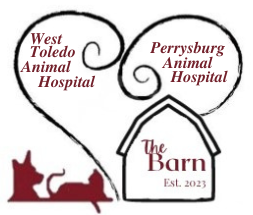
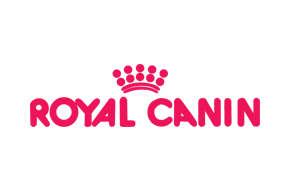
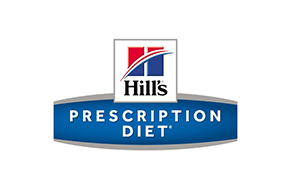
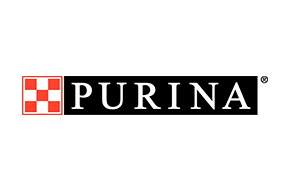
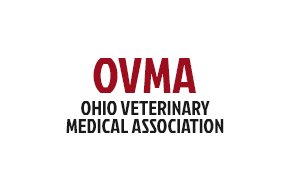
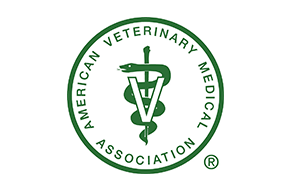
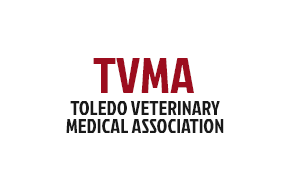

Share On: